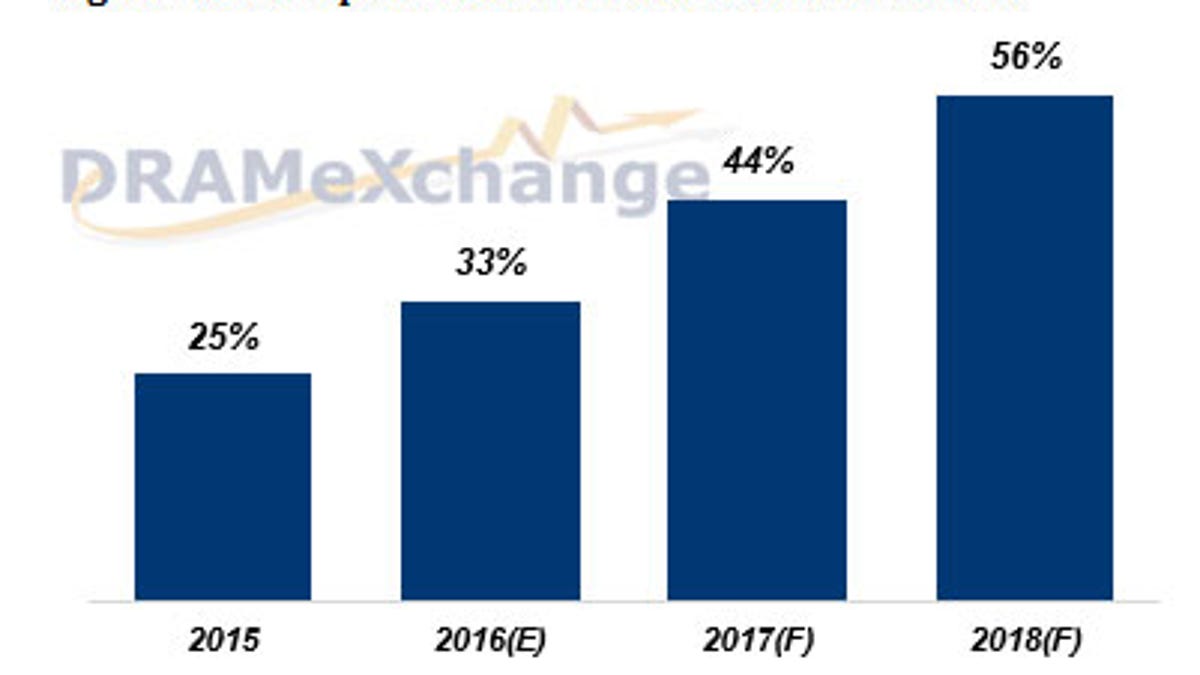Say bye-bye to spinning rust: Soon most PCs won't have hard drives
By 2018, more than half of computers will store data on memory chips instead, analyst firm TrendForce expects.
They've been a fixture of the computing industry for 60 years, but in 2018, hard drives will be pushed aside by storage systems using memory chips in PCs, an analyst firm predicts.
Hard drives revolutionized computing when IBM commercialized the first, RAMAC, in 1956. They read and write ones and zeros as tiny patches of magnetic information on rotating platters. But they don't fit well in phones, thumb drives and camera memory cards, which use a type of memory chips called flash instead. PCs with hard drives remain common, but the fastest machines use banks of flash memory called a solid-state drive (SSD) instead.
SSDs no longer are exotic. This year, 33 percent of PCs sold will come with SSDs, but that should grow to 56 percent in 2018, analyst firm TrendForce forecast Monday.
That's good news for consumers, since SSDs are much faster than hard drives at letting computers turn on, load apps and store files. Check my colleague Dong Ngo's SSD upgrade guide if you want to give your PC a speed boost.
Wags call hard drives "spinning rust," but they still have big advantages over SSDs. For one thing, they're more spacious and cheaper. A top-ranked Crucial MX300 SSD costs $130 for 525GB model, but that much money will get you eight times the storage space for a hard drive. SSDs wear out faster as the data in an individual memory cell is overwritten over and over. And companies buy hard drives by the thousand for cloud-computing services like photo sharing, online backup and document editing.
So, while SSDs are ascendant, don't count hard drives out as obsolete.


